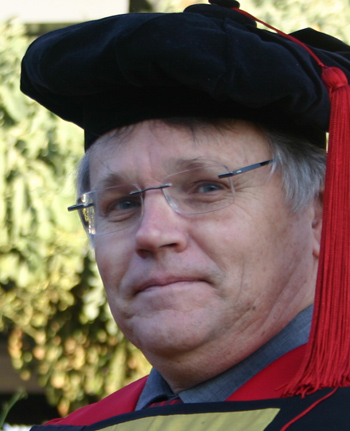Latest News Archive
Please select Category, Year, and then Month to display items
04 April 2024
|
Story Lunga Luthuli
|
Photo SUPPLIED
 Dr Juliet Kamwendo champions gender-inclusive climate action in Africa. Her expertise at the recently held AFR100 workshop highlighted vital steps towards sustainable and equitable development.
Dr Juliet Kamwendo champions gender-inclusive climate action in Africa. Her expertise at the recently held AFR100 workshop highlighted vital steps towards sustainable and equitable development.
Dr Juliet Kamwendo, Lecturer and Programme Director for Gender Studies in the Centre for Gender and Africa Studies at the University of the Free State, is spearheading efforts to integrate gender considerations into Africa's climate restoration agenda. Reflecting on her involvement, Dr Kamwendo stated, "This is particularly crucial, as women make up almost 50% of the population in Africa, and the depletion and degradation of land affect them disproportionately."
She recently served as a gender expert at the AUDA-NEPAD AFR100 workshop in Ouagadougou, Burkina Faso, from 25 to 29 March 2024. This initiative aims to restore forests and degraded land across Africa by 2030, with a focus on gender equality.
The workshop emphasised the integration of gender perspectives into the AFR100 project, acknowledging the disproportionate impact of land degradation on women. Dr Kamwendo's expertise highlighted the need to empower women in climate change interventions, addressing existing gender inequalities exacerbated by environmental degradation.
“Women – who are primarily responsible for household food security and water provision – bear the brunt of environmental degradation, leading to increased workloads, reduced income opportunities, and heightened vulnerability to climate-related disasters. Furthermore, the loss of forest cover and biodiversity further exacerbates the challenges faced by women, particularly in rural areas where they depend heavily on natural resources for their livelihoods,” added Dr Kamwendo.
Her participation highlights academia's crucial role in fostering inclusive and sustainable development, emphasising interdisciplinary collaboration to tackle complex environmental challenges. Through initiatives such as AFR100, stakeholders are working towards a more resilient and gender-responsive future for Africa.
Prof Britz heading to Yale
2013-04-22
|
 |
Prof Dolf Britz
Photo: Supplied
22 April 2013 |
Prof Dolf Britz has been awarded the honour of an appointment at Yale Divinity School (YDS) at Yale University in New Haven, Connecticut, in the United States. Starting in August 2013, Prof Britz will be involved in research initiatives and the teaching of post-graduate seminars at the university, which was founded in 1701.
The appointment is the natural progression of a collaboration agreement between the University of the Free State (UFS) and Yale University which dates back to 2009 with the formation of the Jonathan Edwards Centre Africa. The strategic partnership focuses on increasing African access to quality education and is geared towards empowering new-generation African leaders in academic and faith-based organisations with primary scholarly resources, research, education and publication.
Prof Britz’s appointment is equally exciting to the respective faculties involved at the UFS and Yale.
“We are most grateful that the generous support by the University of the Free States makes it possible for Prof Britz to be with us in this capacity,” said Prof Carolyn Sharp, Interim Associate Dean of Academic Affairs at YDS.
Prof Adriaan Neele, the Director of the Jonathan Edwards Center at Yale and extraordinary professor at the UFS, thinks Prof Britz’s appointment can be just as beneficial to YDS students.
“Prof Britz’s keen insight in historical primary sources will be very beneficial to Yale’s students and the faculty. His appointment demonstrates the strategic nature of the academic relationship between the UFS and Yale,” he said.